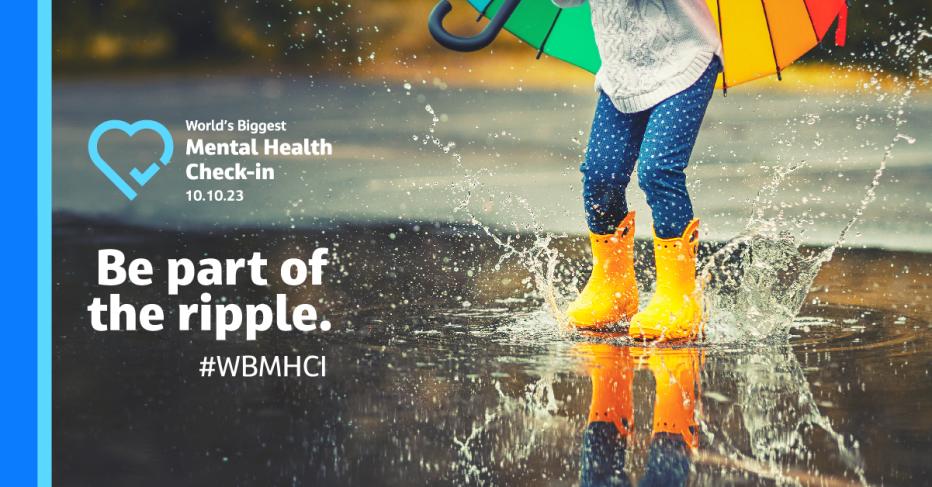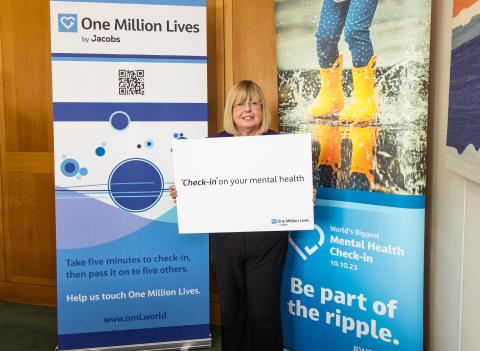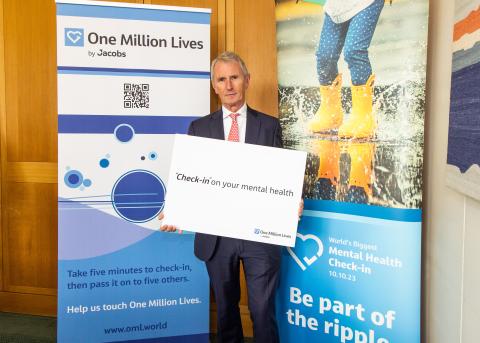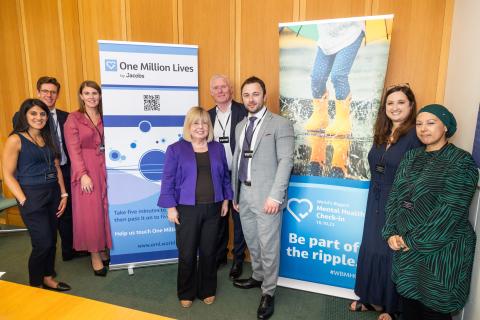



Jacobs. A world where you can.



As climate change threatens water security around the world, more communities are turning to water reuse as a resilient water supply solution and embracing the OneWater principle that all water has value. Jacobs has been supporting clients with water reuse programs for decades, beginning with the first applications of advanced wastewater treatment technologies in the 1960s. We provide our clients with a full range of services, from water reuse feasibility studies to design, construction and operations.



We’ve provided design-build services to the water sector for over 25 years and delivered more than 150 projects. We offer fully integrated design-build and design-build-operate capabilities to tackle the most complex water challenges and work in close collaboration with our clients.



For more than 30 years, Jacobs has been responsible for planning and implementing Lead and Copper Rule-related strategies which protect millions of people in the U.S. and Canada. Our work includes enhanced water quality monitoring strategies, sampling plan development, harvested pipe-scale analysis, lead service line inventories and replacement plans, corrosion control studies and the incorporation of equity and environmental justice considerations into compliance programs.



A curated selection of some of the top-listened to and trending podcast episodes from our popular If/When podcast series.



As a purpose-led company, we know we have a pivotal role to play in addressing the climate emergency. We consider this not only good business, but our duty to channel our technology-enabled expertise and capabilities toward benefitting people and the planet.



We work in partnership, delivering some of the most challenging, diverse and innovative projects and programs globally across multiple sectors. We integrate complex interfaces across planning, procurement and delivery to help unlock better social, environmental and economic outcomes from mega and giga projects.



As our clients navigate the digital transformation and growing cyber risks, we have positioned ourselves at the forefront of this growth, adding digital capabilities, products and tools to serve a growing set of customers.



Sit down with our visionary team of thinkers, dreamers and doers to see what a day in the life is like.



Together with our visionary partner, PA Consulting, we're establishing our position in high end advisory services, creating a springboard to expand in high value offerings beyond the core.


At Jacobs, we're challenging today to reinvent tomorrow by solving the world's most critical problems for thriving cities, resilient environments, mission-critical outcomes, operational advancement, scientific discovery and cutting-edge manufacturing, turning abstract ideas into realities that transform the world for good. With approximately $16 billion in annual revenue and a talent force of more than 60,000, Jacobs provides a full spectrum of professional services including consulting, technical, scientific and project delivery for the government and private sector.



The only certainty about the future is uncertainty. Resilience is an attribute of a smarter planet, and requires planning and adapting ahead of potential threats. We help our clients survive, recover, adapt and thrive.



Jacobs is working to help clients across the United States secure federal funding for projects that make our cities and communities more connected and sustainable. Working hand-in-hand with clients from coast to coast and everywhere in between, Jacobs develops bold, innovative solutions to address the nation’s toughest challenges.



Now more than ever, we appreciate the hard work, sacrifice and dedication of the medical profession in ensuring the health and safety of our communities.



Together, we are stronger. Together, we can transform the future.



Stories that capture our partnerships and innovative impact for a more connected, sustainable world



The World Health Organization (WHO) estimates there are currently more than 700,000 suicides a year worldwide, and for each suicide there are more than 20 suicide attempts. Every suicide is a tragedy that profoundly affects families, friends, colleagues and communities. Although mental health remains one of the leading causes of death and disability across the world, too often in society we fail to address it, talk about it or invest in preventing it.
This Suicide Prevention Week focuses on encouraging people to talk about mental health and suicide awareness and prevention. It’s an opportunity and reminder for people to hit pause for a moment and come together to check-in on their mental health.
“Most of us would not hesitate to go to the doctor for regular tests and check-ups if we had concerns about our physical health,” says Jacobs Global Vice President of Health, Safety and Environment Paul Hendry. “But when was the last time you had a mental health check-up? We often only seek help with our mental health when we’re already in crisis.”
In 2020, Jacobs developed a free mental health check-in tool called One Million Lives to help enhance users' understanding of their current state of mind and provide proactive strategies for personal mental health development. Available for free, the tool is accessible to everyone — no matter where they live, who they are or the organization for which they work.
“We recognized that the lives of our employees’ family and friends can impact the day-to-day lives of our employees, so we wanted this to be a free resource for all to use and share,” continues Paul. “Our goal with One Million Lives is to break down the barriers that hinder honest conversations about mental health and encourage an open culture of support. By completing a regular check-in, people will ideally be better equipped to assess early indicators of challenges, start positive and active conversations, get support much earlier, and develop appropriate coping mechanisms and resiliency.”
To raise awareness about prioritizing mental health and resilience, this week U.K. Member of Parliament (MP) Liz Twist invited Jacobs to host a drop-in session for MPs, to learn more about resources – like the free One Million Lives mental health check-in tool and other online resources – and support that charity R;pple and organization Make A Difference Media provide.
A passionate campaigner on suicide prevention, Liz Twist says, “Every suicide is a tragedy, and most often a complex one with no single cause. However, statistics do show that middle-aged men, particularly those in the construction sector, are some of the most at risk. It was therefore encouraging to see so many colleagues attend the parliamentary drop-in session I hosted this week with Jacobs and charity R;pple and Make A Difference (MAD) to raise awareness during Suicide Prevention Week and learn more about services available to those who are struggling.”
“It has also been good to see the issues within the construction sector being recognized within the new National Suicide Prevention Strategy,” she explains. “I am pleased to see more organizations focusing on the importance of positive mental health as a step to preventing suicide and I urge colleagues and constituents of mine to look at services such as the One Million Lives app and to check-in on your mental health.”

Liz Twist MP hosting information session

The Rt Hon Mr Nigel Evans

Liz Twist MP (center) with the Jacobs team and Alice Hendy of R;pple (second from right) and Misbah Harun-Popat from Make A Difference Media (far right)

Jacobs collaborates with other organizations that provide mental health tools and support resources, including R;pple, the suicide prevention charity, and Make a Difference Media.
R;pple was set up by Alice Hendy to ensure more help and support is given to individuals searching for harmful content online. The digital tool can be downloaded as a browser extension. If a user searches for harmful content online, they will be guided through a series of practical support, strategies and mental health services they can access.
Make A Difference Media provides a global learning space for employers looking to adopt, embed and evolve inclusive, preventative strategies that will have a sustainable impact on mental, physical, financial and social wellbeing as well as on workplace culture and environment.
On October 10, you can also take part in the “World’s Biggest Mental Health Check-in” and join thousands of people in a global day of action for positive mental health. Take a few minutes to check in on your mental health using an online check-in tool like One Million Lives, and encourage family, friends and networks to check in too.
The House Magazine, Politics Home: Have you checked in on your mental health?
Make a Difference Media: Jacobs raises awareness with UK Government of need for mental health checks